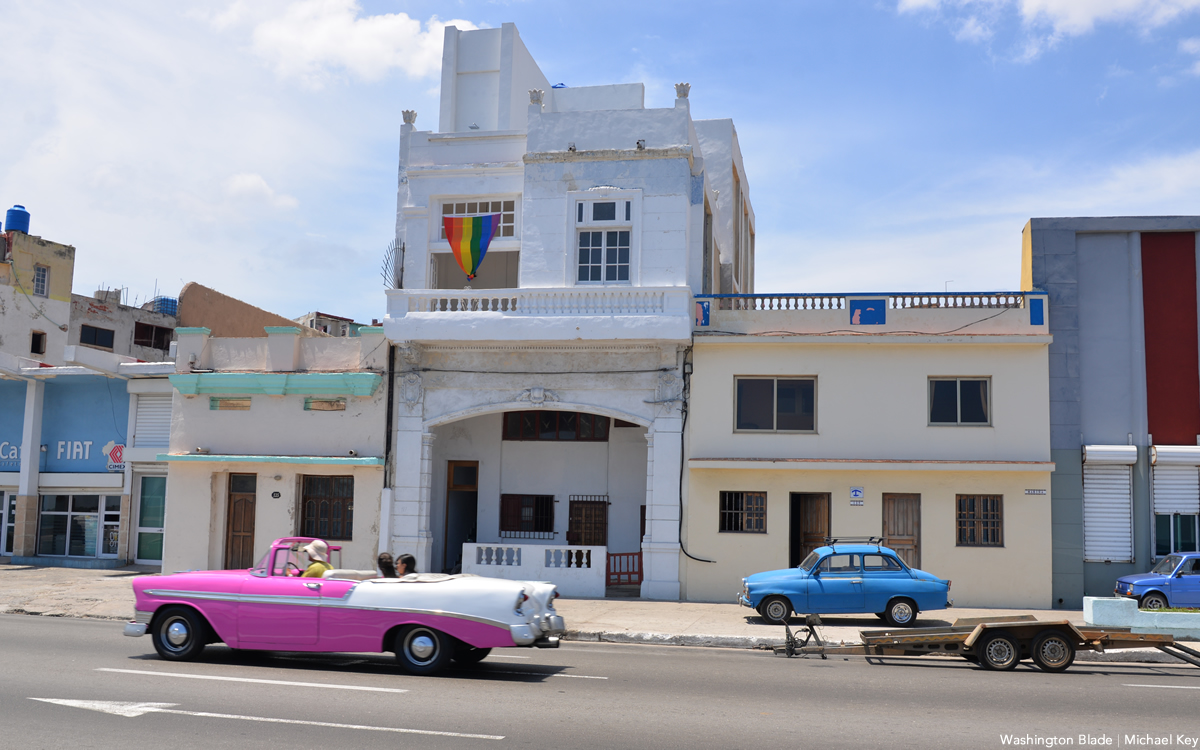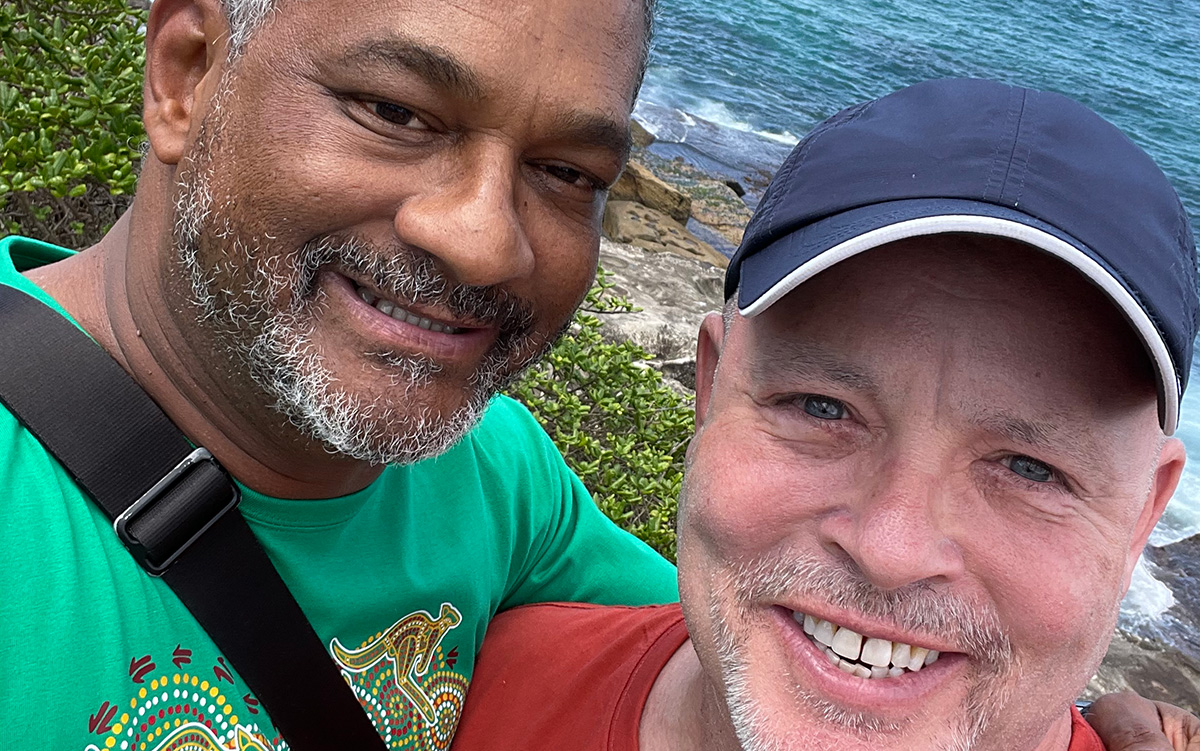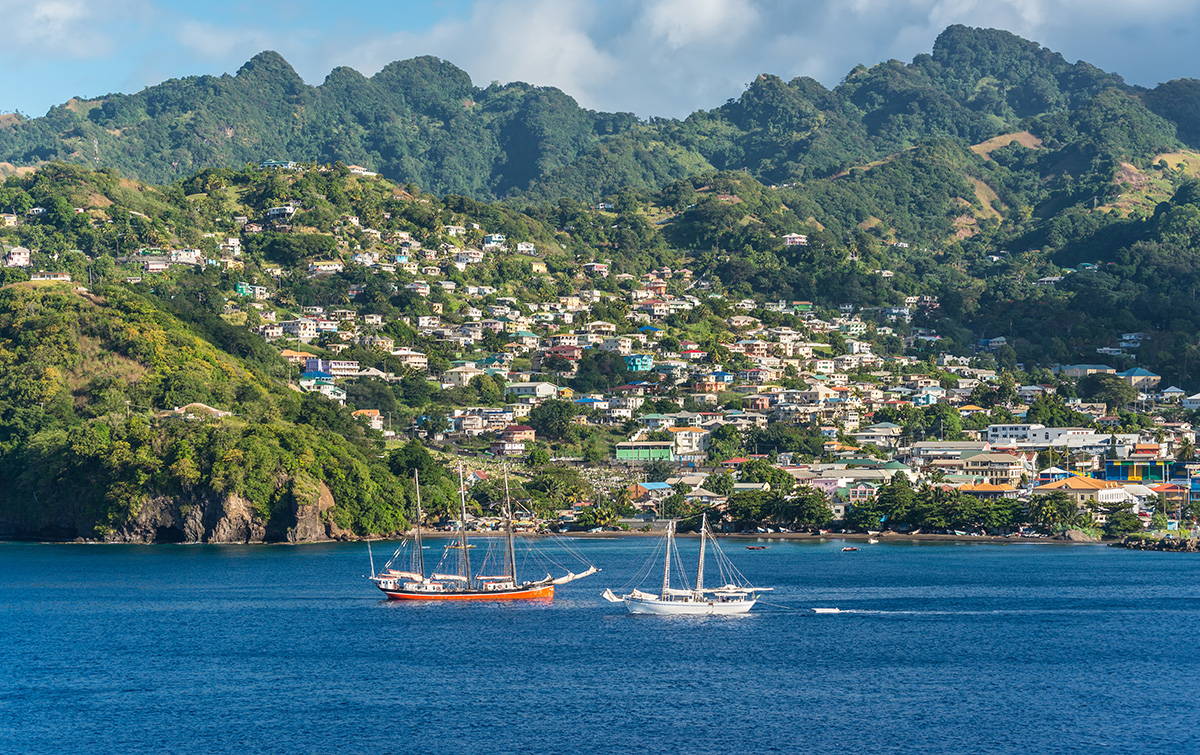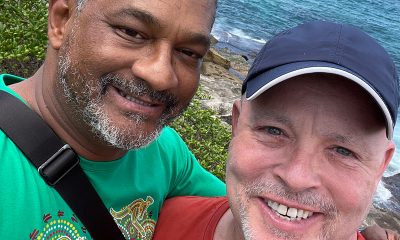Caribbean
Cubans approve marriage equality-inclusive family code
Referendum took place amid continued government persecution

Cubans on Sunday approved a new family code that extends marriage and adoption rights to same-sex couples.
Gramna, the official newspaper of the Cuban Communist Party, on Monday reported 66.9 percent of Cubans who participated in the referendum voted in favor of the new family code.
“Sept. 25, 2022, is already a historic day,” said Gramna. “The island has once again demonstrated that the revolution will never stop in its quest for more justice, independent of its adversaries. The road has never been easy, but it is very worthy.”
Mariela Castro, the daughter of former President Raúl Castro who spearheads LGBTQ and intersex issues in Cuba as director of the country’s National Center for Sexual Education, is among those who support the new family code. Mariela Castro on Sunday posted to her Facebook page a picture of her voting for it in Havana, the Cuban capital.
“I voted yes for Cuban families, for a socialist Cuba, for the world’s most revolutionary and humanist family code, for a socialist state built upon rights and social justice that recognizes and protects all families,” said Mariela Castro after she voted.
The Cuban government in the years after the 1959 revolution that brought Mariela Castro’s uncle, Fidel Castro, to power, sent gay men and others to work camps. Cubans with AIDS were forcibly quarantined in state-run sanitaria until 1993.
Cuba joins Costa Rica, Colombia, Ecuador, Brazil, Argentina, Uruguay, Chile, Mexico City and several Mexican states that have extended marriage rights to same-sex couples. Puerto Rico, the U.S. Virgin Islands, Aruba, Curaçao, Bonaire, French Guiana, Guadeloupe, Martinique, St. Barthélemy, St. Martin, Sint Maarten, Sint Eustatius and Saba also have marriage equality.
Cuban government critics face harassment, arrest
Sunday’s referendum took place nearly four years after Cuban voters overwhelmingly approved their country’s new constitution. The government’s decision to remove a marriage equality amendment that religious groups had publicly criticized sparked outrage among independent LGBTQ and intersex activists.
LGBTQ and intersex Cubans and others who publicly criticize the Cuban government also continue to face harassment, discrimination and arrest.
Maykel González Vivero, editor of Tremenda Nota, the Washington Blade’s media partner in Cuba, is among the hundreds of people who were arrested during anti-government protests that took place across the country on July 11, 2021. The U.S. in 2019 granted asylum to Yariel Valdés González, a Blade contributor who suffered persecution in Cuba because he is a journalist.
Yoan de la Cruz, a gay man who used Facebook Live to livestream the first July 11 protest that took place in San Antonio de los Baños in Artemisa province. De La Cruz subsequently received a 6-year prison sentence, but he was released on house arrest in May.
Brenda Díaz, a transgender woman with HIV who participated in a July 11 protest in Güira de Melena in Artemisa province, has been sentenced to 14 years in prison. The State Department has said it is “very concerned” about Díaz’s health and well-being and urged the Cuban government to release her.

Dominica’s High Court of Justice on Monday struck down provisions of a law that criminalized consensual same-sex sexual relations.
A gay man who remains anonymous in 2019 challenged sections of the country’s Sexual Offenses Act that criminalized anal sex and “gross indecency” with up to 10 years and 12 years in prison respectively. The plaintiff argued the provisions violated his constitutional rights.
The Dominica Equality and Sexual Expression Association and the Eastern Caribbean Alliance for Diversity and Equality, a group that advocates for LGBTQ and intersex rights in the region, in a press release noted the court in its ruling affirmed “the criminalization of consensual same-sex activity between adults is unconstitutional.” The groups added Justice Kimberly Cenac-Phulgence “declared that the laws commonly known as buggery and gross indecency laws, contravenes the constitution of the Commonwealth of Dominica, namely the right to liberty, freedom of expression, and protection of personal privacy.”
“It is long past time that the dignity and dreams of all Dominicans were recognized,” said DESEA Executive Director Sylvester Jno Baptiste in the press release. “We are all God’s children, and he loves us all equally. Laws that treat some Dominicans as less than others, have no place in a just society.”
Dominica is a former British colony that is located between Guadeloupe and Martinique in the Lesser Antilles.
Antigua and Barbuda, St. Kitts and Nevis, Barbados, and Trinidad and Tobago in recent years have decriminalized consensual same-sex sexual relations.
The Inter-American Commission on Human Rights in 2021 issued a decision that said Jamaica must repeal its colonial-era sodomy law. The country’s Supreme Court last year ruled against a gay man who challenged it.
A judge on St. Vincent and the Grenadines’s top court in February dismissed two cases that challenged the country’s sodomy laws.
“Decriminalization helps create an environment where LGBTQ individuals can live openly without fear of persecution, enabling them to access health care, education, and employment without facing discrimination,” said Outright Executive Director Maria Sjödin on Monday in response to the Dominica ruling. “The repeal of these discriminatory laws is a testament to the tireless efforts of activists, advocates, and allies who have long fought for justice and equality. It is a victory for human rights and a significant milestone in the ongoing struggle for LGBTQ rights in the Caribbean.”
Caribbean
Same-sex couple seeks recognition of Fla. marriage in Turks and Caicos
Tim Haymon denied spousal exemption under territory’s immigration law

A same-sex couple has filed a lawsuit against the Turks and Caicos Islands’ government after it refused to legally recognize their marriage.
Richard Sankar, a realtor who has lived in the British territory for 27 years and is a Turks and Caicos citizen, married Tim Haymon in Fort Lauderdale, Fla., in 2020.
Haymon, who is American, in August 2021 applied for a spousal exemption under the Turks and Caicos’ immigration law on the basis of his status as a spouse that would have allowed him to legally live and work in the territory. The Turks and Caicos’ Director of Immigration denied the application because its definition of marriage used does not include same-sex couples. Haymon and Sankar filed their lawsuit in October 2021.
Stanbrook Prudhoe, a law firm in the Turks and Caicos, represents Haymon and Sankar.
The trial court, which is also known as the Supreme Court, heard the case in November 2022.
The court on March 1 said the work permit exemption refusal violates the Turks and Caicos’ constitution that bans discrimination based on sexual orientation. It has yet to release the ruling itself.
“I am suing for the right to recognize our marriage,” Haymon told the Washington Blade on March 2 during a Zoom interview from Sydney where he and Sankar were on vacation. “Just like any other spouse coming to the Turks and Caicos Islands and marrying a Turks and Caicos islander, we’re just wanting the same rights.”
The Turks and Caicos are a group of islands that are located roughly 650 miles southeast of Miami.
Consensual same-sex sexual relations have been decriminalized in the British territory since 2001. The constitution states “every unmarried man and woman of marriageable age (as determined by or under any law) has the right to marry a person of the opposite sex and found a family.”
Then-Cayman Islands Grand Court Chief Justice Anthony Smellie in 2019 ruled same-sex couples can legally marry in the Cayman Islands. The Caymanian Court of Appeal later overturned the decision, and the British territory’s Civil Partnership Law took effect in 2020.
Then-Bermuda Supreme Court Justice Charles-Etta Simmons in 2017 issued a ruling that paved the way for gays and lesbians to legally marry in the British territory. The Domestic Partnership Act — a law then-Gov. John Rankin signed that allows same-sex couples to enter into domestic partnerships as opposed to get married — took effect in 2018.
Bermuda’s top court later found the Domestic Partnership Act unconstitutional. The Privy Council, a British territories appellate court in London, upheld the law. It also ruled same-sex couples do not have the constitutional right to marry in the Cayman Islands.
Haymon and Sankar told the Blade they expect the Privy Council will eventually hear their case.
“We are prepared for that,” said Sankar. “Our attorneys are prepared for that.”
Haymon added he hopes their lawsuit will inspire other same-sex couples in the Turks and Caicos to fight for legal recognition of their relationships.
“We hope that one of the locals will now take up the flag and say I want to marry my partner,” he said.
Same-sex couples can legally marry in Cuba, Puerto Rico, the U.S. Virgin Islands, Saba, St. Martin, St. Barts, St. Eustatius, Guadeloupe, Martinique and Bonaire.
The Joint Court of Justice of Aruba, Curaçao, Sint Maarten and of Bonaire, Sint Eustatius and Saba in 2022 ruled Aruba and Curaçao, which are constituent countries within the Netherlands, must allow same-sex couples to legally marry.
Aruban lawmakers are currently considering a marriage equality bill. The Dutch Supreme Court in the coming months is expected to rule on the Aruba and Curaçao case.
Caribbean
St. Vincent and the Grenadines judge dismisses challenges to country’s sodomy laws
‘Freedom and equality are worth fighting for’

A judge on St. Vincent and the Grenadines’ top court on Friday dismissed two cases that challenged the country’s sodomy laws.
Two gay men from St. Vincent, the country’s main island, in 2019 challenged laws that criminalize consensual same-sex sexual relations. High Court Justice Esco Lorene Henry on Friday dismissed the two cases.
Sean Macleish, one of the two plaintiffs who lives in the U.S., expressed disappointment in the decision.
“I am disappointed with the judge’s ruling and will be discussing our options with my legal team because freedom and equality are worth fighting for,” Macleish told the Washington Blade on Friday in an email.
Jeshua Bardoo, a lawyer who founded Equal Rights, Access and Opportunities SVG, a Vincentian advocacy group, said Friday is a “sad day for LGBTQ+ rights in Saint Vincent and the Grenadines.”
“Internationally and regionally, laws similar to those challenged in these cases have been declared unconstitutional and in violation of the rights of LGBTQ+ persons,” said Bardoo in a press release the Eastern Caribbean Alliance, a regional LGBTQ rights group, issued. “These archaic and draconian colonial laws, though not strictly enforced, symbolically denigrate LGBTQ+ persons as second-class citizens in their own country and perpetuate prejudice and stigma against them.”
Outright International Executive Director Maria Sjödin also criticized the ruling.
“The rejection of the bid to decriminalize same-sex conduct in Saint Vincent and the Grenadines is a huge disappointment and significant setback for LGBTQ rights in the country,” said Sjödin. “We urge the government to reconsider its position and take meaningful steps towards ensuring the full protection and dignity of all citizens, regardless of their sexual orientation or gender identity.”
Antigua and Barbuda, St. Kitts and Nevis, Barbados and Trinidad and Tobago in recent years have decriminalized consensual same-sex sexual relations.
The Inter-American Commission on Human Rights in 2021 ruled Jamaica must repeal its colonial-era sodomy law. The country’s Supreme Court last year ruled against a gay man who challenged it.
-

 State Department4 days ago
State Department4 days agoState Department releases annual human rights report
-

 South America2 days ago
South America2 days agoArgentina government dismisses transgender public sector employees
-

 District of Columbia2 days ago
District of Columbia2 days agoCatching up with the asexuals and aromantics of D.C.
-

 Politics4 days ago
Politics4 days agoSmithsonian staff concerned about future of LGBTQ programming amid GOP scrutiny










